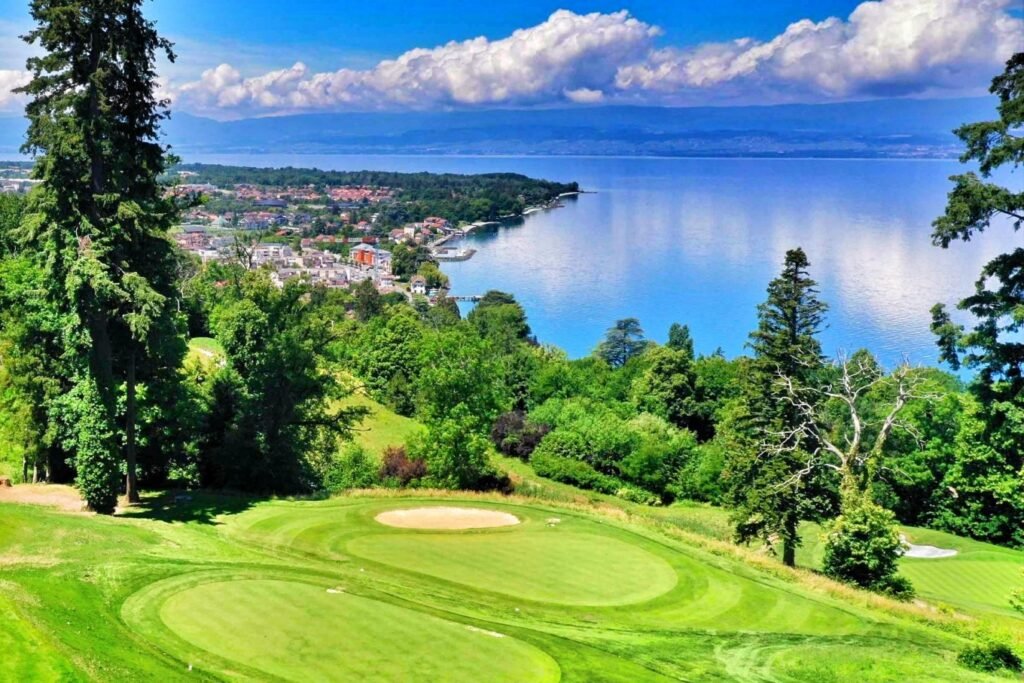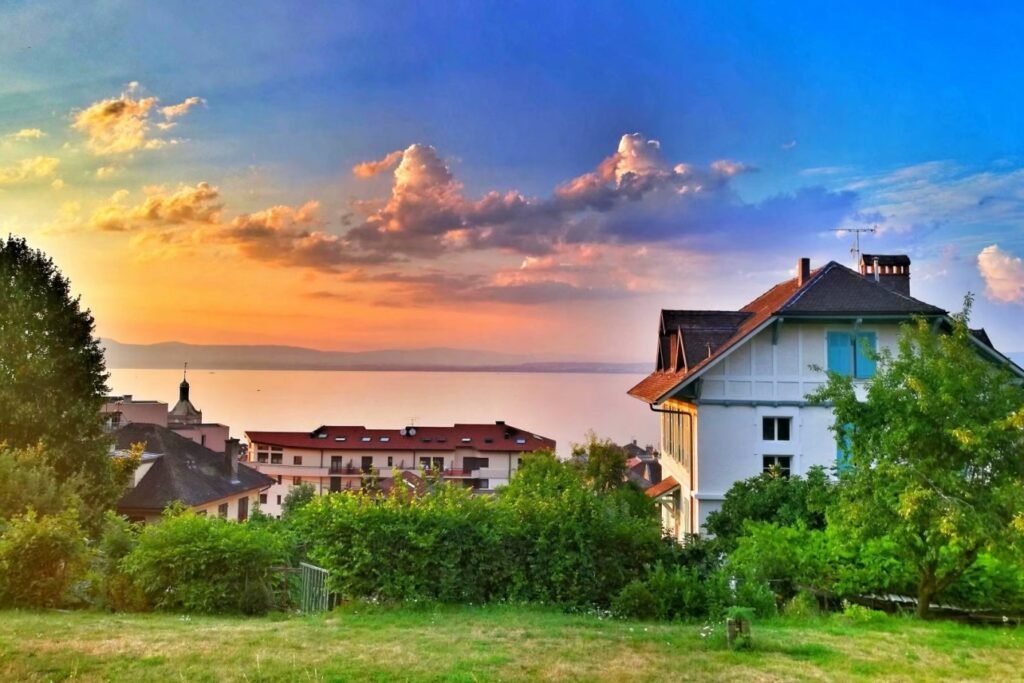The town of Évian, like Annecy, is an old city in southeastern France, situated within the same Haute-Savoie department. Both towns are built along scenic lakes, with Évian located on the southern shore of Lake Geneva. The town’s picturesque setting, surrounded by the majestic Alps and the vast expanse of the lake, has made it a popular tourist destination in Europe. Unlike Annecy, which lies closer to the international hub of Geneva, Évian faces the Swiss city of Lausanne across the lake. The two towns are only 90 kilometers apart, and it took us just over an hour by car to reach Évian.
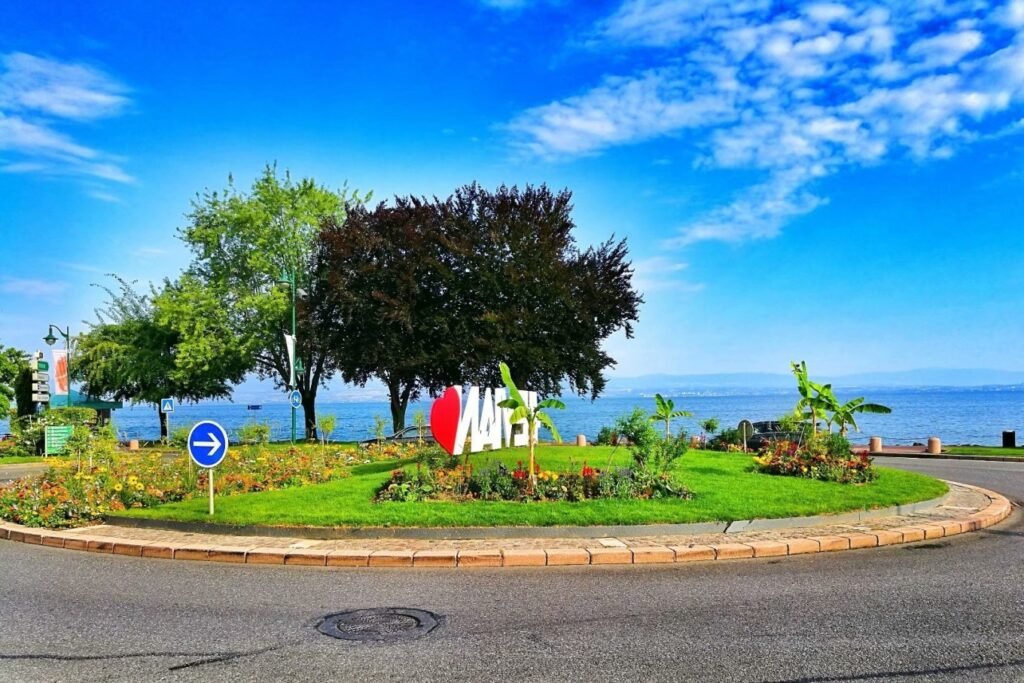
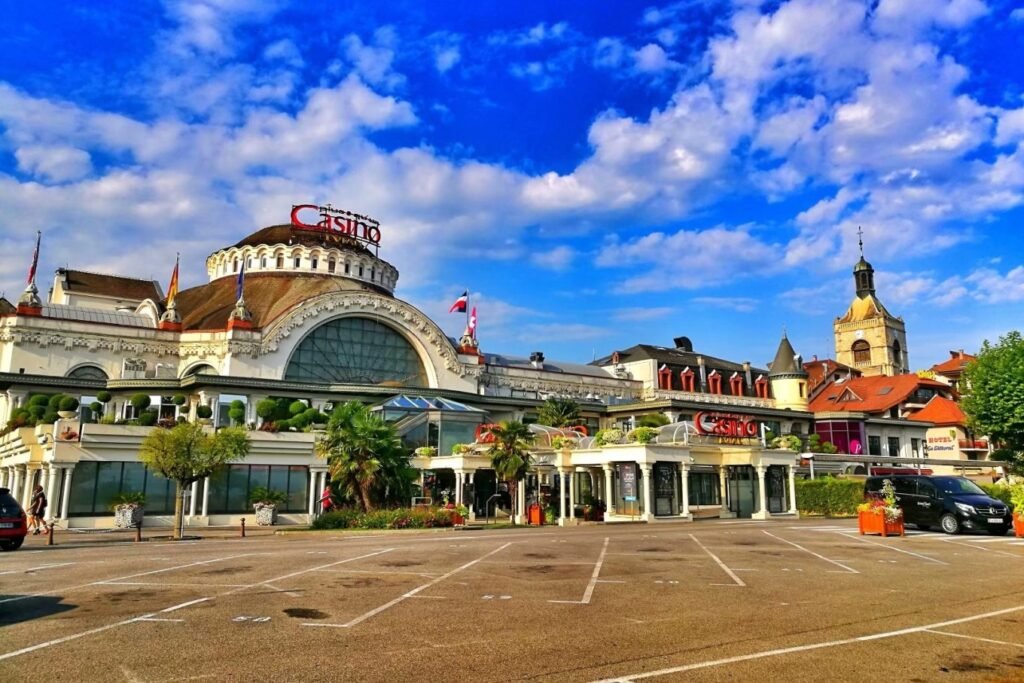
The town’s official name is Évian-les-Bains, often shortened to Évian. However, many people prefer the translation “Yiyun,” which adds a touch of romance to the name. Smaller than Annecy, with a population of just 7,500, Évian enjoys a surprisingly generous budget that exceeds that of a city with 40,000 residents. This prosperity stems from the source that has made the town world-famous: Évian mineral water. The reputation of this iconic water brand far surpasses that of the town itself, drawing international recognition and tourism.
The name “Évian” literally means “water” and traces its origins to the natural springs that flow from the majestic Alps behind the town. It is a place where water has given life and identity to the region. The town owes its charm and renown to the steady flow of pure Alpine spring water, creating the legend and allure of Évian.
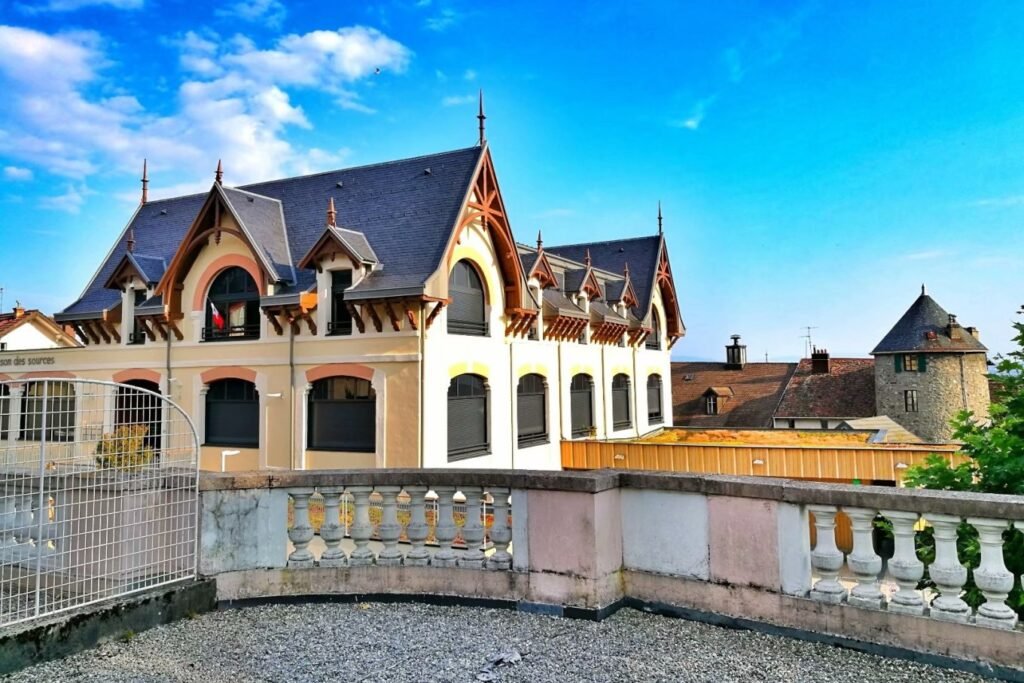
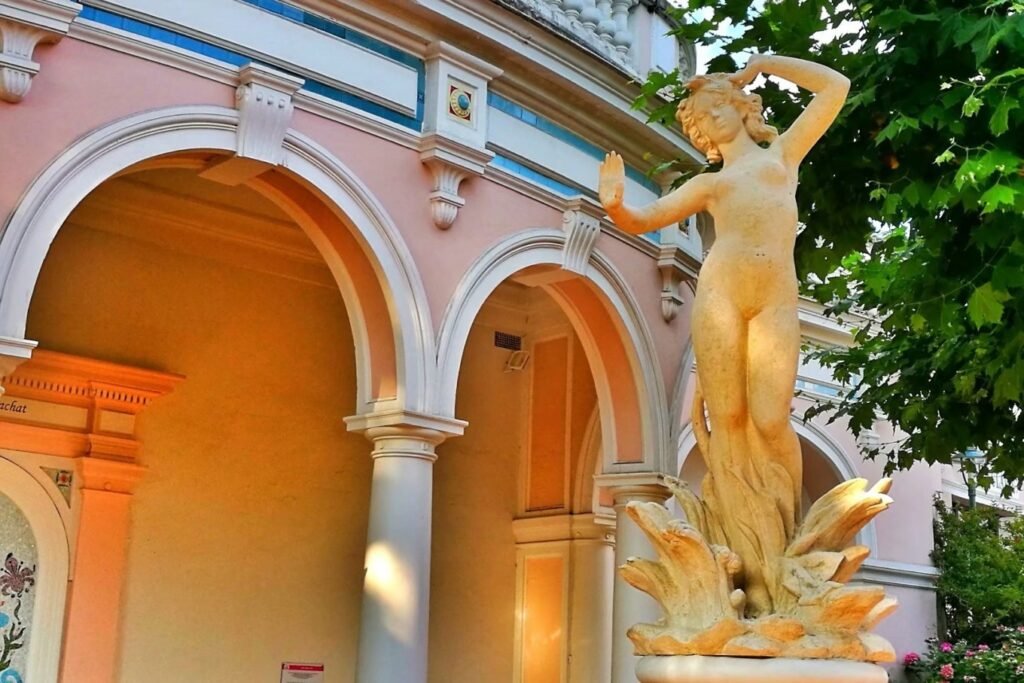
The Discovery and Evolution of Évian Water
The story of Évian water is nothing short of legendary, marked by a transition from exclusivity to accessibility. According to lore, during the French Revolution in the 18th century, a nobleman suffering from kidney stones stayed in Évian for some time. He began drinking the local spring water daily and, to his amazement, found his condition miraculously cured. News of this spread rapidly, attracting crowds eager to experience the water’s healing effects firsthand. Experts soon confirmed its therapeutic properties through rigorous testing.
In 1824, the town opened its first thermal spa, catering to the wealthy. Évian’s reputation grew further when Emperor Napoleon III and Empress Eugénie visited, granting the town official recognition. Évian water became a prestigious product, reserved exclusively for royalty. In 1839, the first mineral bathhouse was established. By 1902, the Evian Thermal Center, now known as the world-famous Évian Spa, was founded. Open to the public, it offers a range of wellness services. Visitors can savor fresh mineral water from the Alps, swim in thermal pools, or unwind in massage baths.
One of the most iconic sites in Évian is the Cachat Gardens, home to the legendary spring that supposedly cured the nobleman’s illness. This garden is now a popular tourist destination, where visitors can sample the renowned water at its source. A short walk from the Évian Spa leads to another spring, the Cordeliers source, where both locals and tourists gather. Even visitors from neighboring Switzerland make it a point to fill bottles with Évian water to bring back home, taking a piece of this legendary water with them.
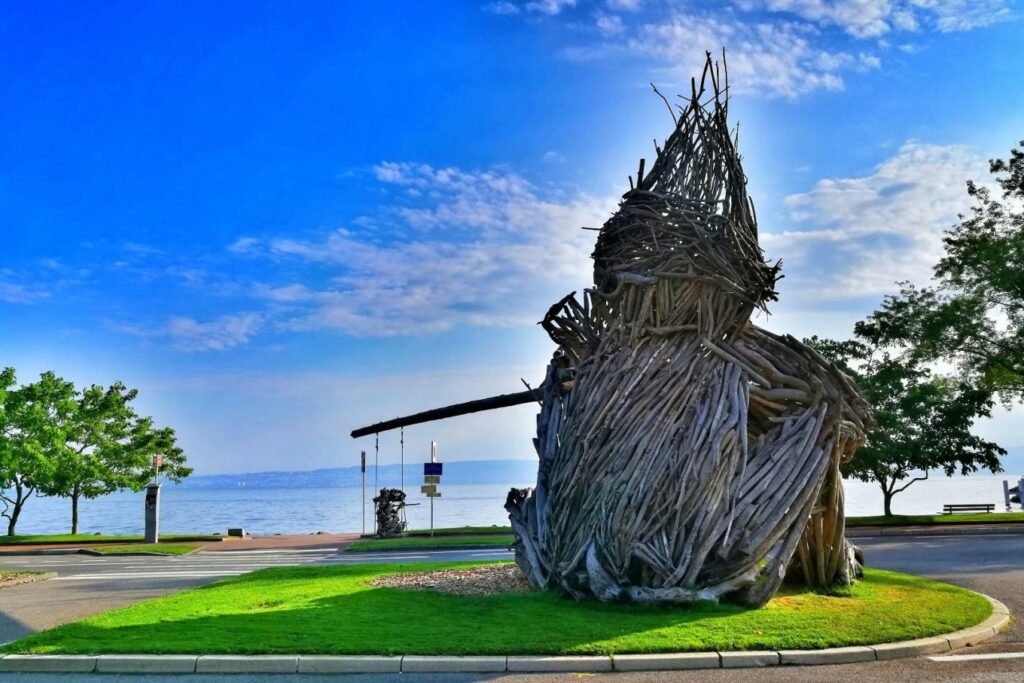
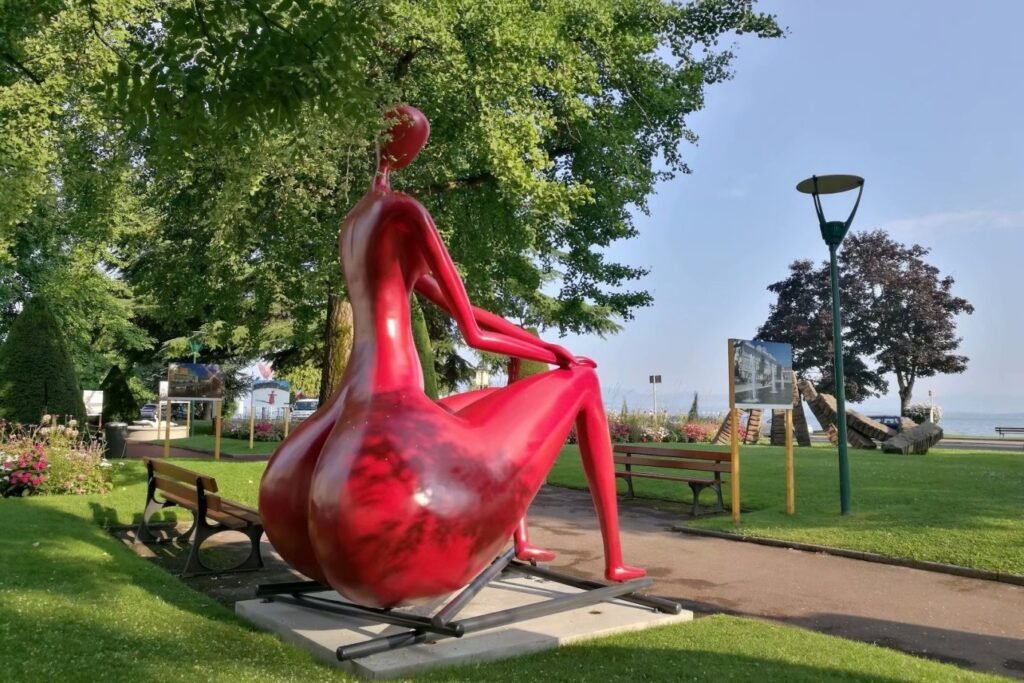
Évian water is a gift from the heavens and a bounty from nature. It is Évian’s unique geography that gives rise to this exceptional water. In essence, Évian water originates from the glacial snowmelt of the Alps, combined with mountain rainwater. This water undergoes a natural filtration process deep within the Alps for 15 years, mineralizing as it passes through glacial sand layers, transforming into refreshing mineral water. Naturally pure and rich in minerals, experts have found that it offers therapeutic benefits for the urinary, digestive, nervous, and cardiovascular systems. As the world’s only naturally osmotic thermal water, it rapidly penetrates the skin’s surface upon contact, allowing its beneficial components to take full effect, providing outstanding healing and skincare properties. This “miracle water” is also said to be the secret behind the radiant beauty of French women who frequent the local thermal baths, earning Évian the title of “Queen of Spa Towns.”
Local residents cherish Évian water as a lifeline for their town, with over 70% of the town’s revenue coming from the mineral water industry and related activities. The production process is straightforward: the pristine spring water is directly bottled without any processing or additives, ensuring the highest quality. After labeling, the water is distributed worldwide. All Évian water originates from the Évian mineral water plant, which employs nearly a thousand workers, most of whom are locals, proud to be part of this prestigious facility.
To preserve this invaluable resource, the town has established a water source protection association. Efforts include reforestation, soil preservation, pollution reduction, and sustainable resource management to prevent overexploitation. The town also focuses on beautifying the environment, creating a green, vibrant, and scenic garden city with tree-lined streets, lush lawns, and blooming flowers all year round. Living in such a peaceful and colorful town, residents enjoy a sense of fulfillment. As the town’s mayor once remarked, “Anyone who comes to live and work in Évian never wants to leave.” Indeed, strolling through the quiet streets and wandering along the shores of Lake Geneva under the setting sun, you feel the town’s rhythm, slow and steady, just like the flowing waters from the Alps—timeless and enduring. Before you know it, you too find yourself slowing down, savoring every moment in this tranquil paradise.

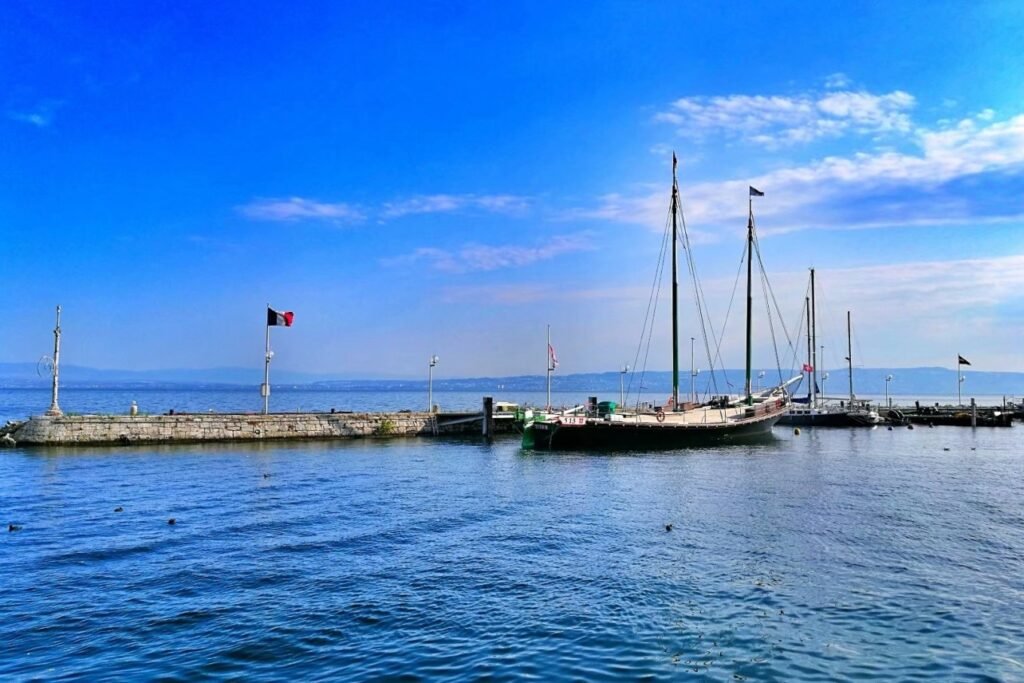
Évian is indeed a place ideal for slow tourism. In summer, you can swim; in winter, you can ski; and throughout the year, you can enjoy thermal spa treatments. Every year, countless people come here for tourism and leisure, making it one of France’s most popular spa towns. The tourism industry is highly developed, with many locals speaking English and offering warm hospitality.
In the town center, there is a pedestrian street. Alongside the well-known Water Museum, the street is filled with shops selling various perfumes, silk, fashion items, jewelry, and souvenirs. The wide selection of products and attentive service are enough to spark visitors’ shopping interests. The street is not long and can be explored quickly.
If you manage to visit in the evening, head to the beautiful shores of Lake Geneva to quietly enjoy a sunset. Watching the sky filled with afterglow and colorful clouds will surely leave an even more unforgettable impression of this warm yet leisurely French town.
